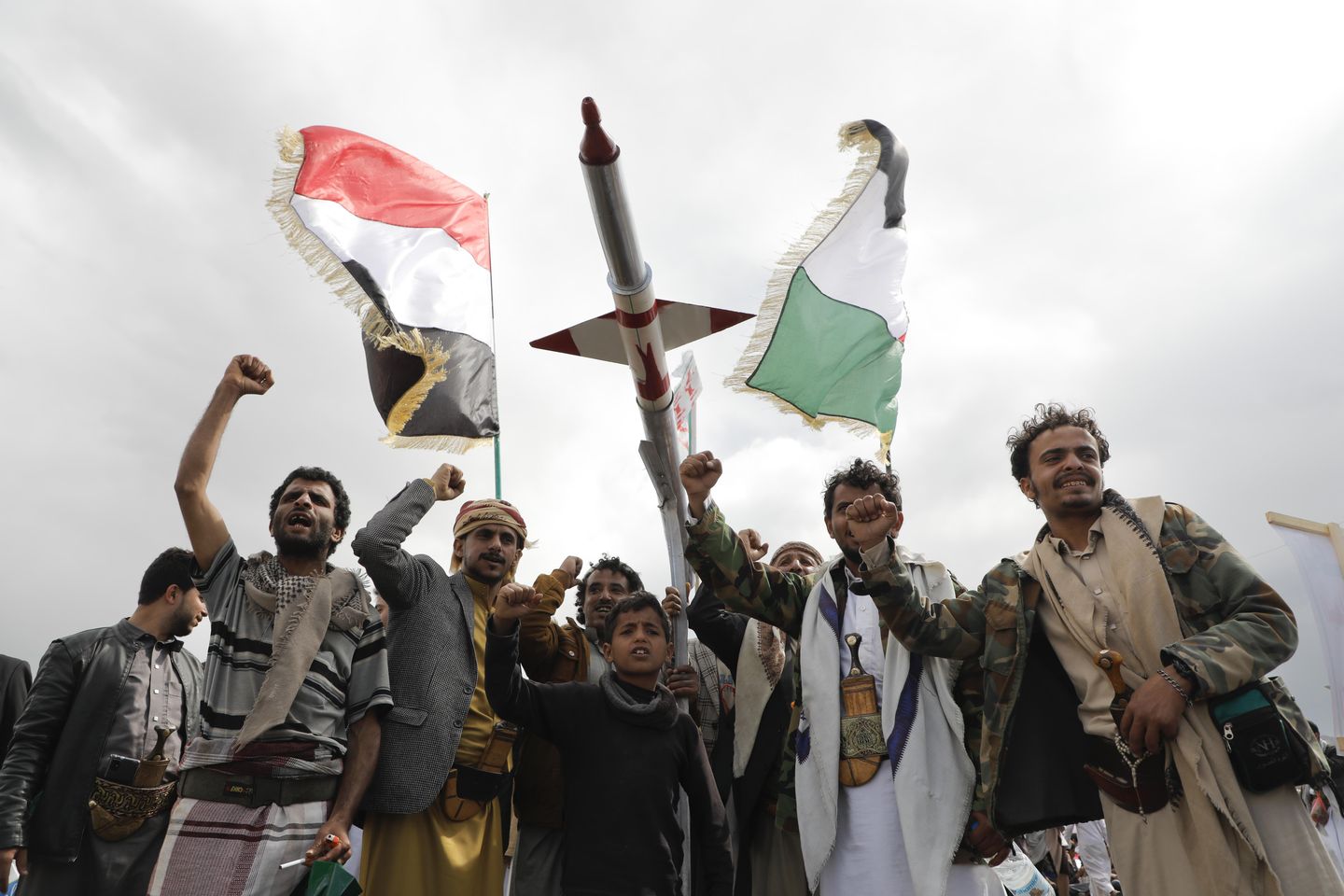
The warships and crews assigned to the U.S.-led mission to defend commercial ship traffic through the Red Sea are operating at a pace not seen since World War II, the director of the Navy’s surface warfare division in the office of the Chief of Naval Operations said Tuesday.
The Navy destroyers attached to Operation Prosperity Guardian have been dispatched to the Gulf of Aden and the Red Sea to protect international merchant ships from attacks by Iran-backed Houthi rebels in Yemen, who say they have launched the attacks in solidarity with Palestinians fighting Israel in Gaza.
“Our forces are engaged in the Red Sea right now,” Rear Adm. Fred Pyle said in a briefing at the Center for Strategic and International Studies. “They have to be prepared at a moment’s notice to conduct engagements and they have to get it right every single time.”
The warships — and the merchant vessels — are facing a range of anti-ship cruise missiles and anti-ship ballistic missiles that are launched from Yemen. Admiral Pyle said the sailors and the shipborne air defense systems they are using to intercept the Houthi attacks are working as expected.
“These sailors are having to steam through merchant ships at night and be able to get up and get set up to conduct an engagement,” said Admiral Pyle, who spent some 30 years of his Navy career on destroyers. “That’s a difficult task to replicate month after month after month, and they’re performing very well.”
In their current alert to merchant seamen, the U.S. Maritime Administration said commercial vessels transiting the Southern Red Sea through the Bab el Mandeb Strait and the Gulf of Aden continue to face an “elevated risk of terrorism and other hostile actions from the Houthis.”
There have been at least 53 separate Houthi attacks on commercial vessels and at least one Houthi seizure of a merchant ship in the region since November 2023, U.S. officials said. The Yemeni rebel group has received significant military aid from Iran, U.S. and Israeli officials say.
“Entities claiming to be Yemeni authorities have also attempted to divert commercial vessels operating in these regions from their course,” the U.S. Maritime Administration said in their current alert. “These threats pose both direct and collateral risks to commercial vessels transiting in international shipping lanes, or otherwise operating in these areas.”
On Monday, the U.S. mission to the United Nations said Houthi attacks against ships operating in the Red Sea are making any kind of progress toward a sustainable peace in Yemen itself elusive. The humanitarian situation in the country has worsened for the Yemeni people since the Houthi attacks began, Ambassador Robert Wood, the U.S. mission’s representative for special political affairs said Monday before the U.N. Security Council.
“As a result of the Houthi attacks driving up prices and causing delivery delays, Yemenis struggle to buy goods, food and essentials in marketplaces,” Mr. Wood said. “We must collectively call Iran out for its destabilizing role and insist that it cannot hide behind the Houthis.”
